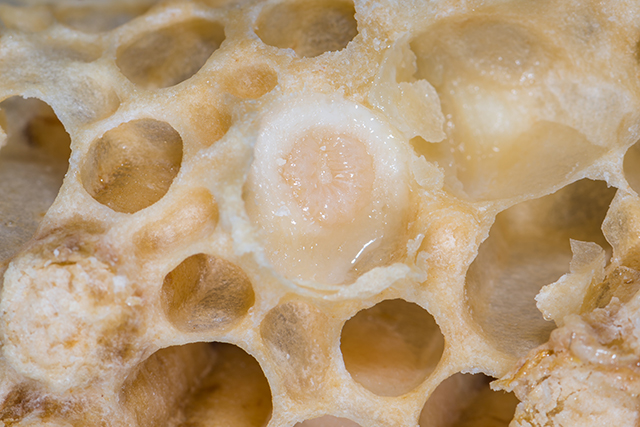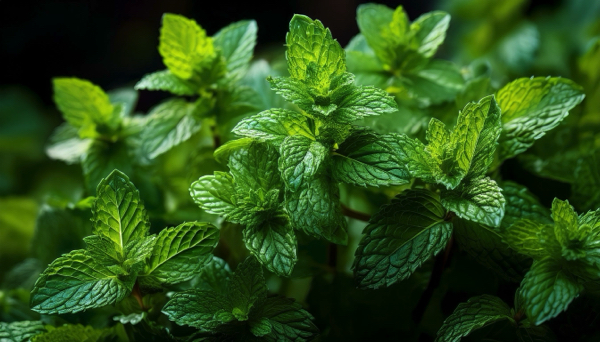Ginger treats heavy menstrual bleeding
07/24/2024 / By News Editors

In the first study of its kind, ginger is found to be an effective treatment for heavy menstrual bleeding in young women.
(Article republished from GreenMedInfo.com)
Heavy menstrual bleeding (menorrhagia) is one of the most common gynecological problems in women, accounting for approximately 15% of all primary care consultations or outpatient referrals to hospitals, and is treated conventionally with a combination of the following interventions: iron supplements, nonsteroidal anti-inflammatory drugs (NSAIDs), oral contraceptives, oral progesterone and a progestin-containing hormonal IUD marketed as Mirena.
Most of these interventions have serious, if not also life-threatening side effects, and which is why safe, evidence-based, natural alternatives are sorely needed today.
Thankfully, research on botanical therapies is exploding today, and a recent study published in the journal Phytotherapy Research shows that ginger may in fact offer an excellent natural solution for this all too common condition in women.
Titled, “Effect of Ginger (Zingiber officinale) on Heavy Menstrual Bleeding: A Placebo-Controlled, Randomized Clinical Trial,”[i] the doubled-blind, placebo-controlled study enrolled 92 young women experiencing heavy menstrual bleeding and who were found free of the following exclusion criteria:
(a) having irregular menstrual cycles;
(b) being diagnosed with any gynecological diseases such as endometriosis, ovarian cysts, etc.;
(c) taking regular hormonal medications or NSAIDs;
(d) vaginal infection or pelvic inflammatory disease; and
(e) overweight/obesity ((BMI > 25) or underweight (BMI < 18.5).
The study subjects were evaluated for six consecutive menstrual cycles. After an initial 3-week assessment period, the participants were randomly allocated into two study groups: one receiving 250 mg dried ginger capsules and the other receiving placebo capsules filled with lactose (milk sugar), for another 3-week period.
The results were reported as follows:
“The level of menstrual blood loss dramatically declined during the three intervention cycles in ginger-receiving group. The decrease of blood loss in ginger-receiving group was significantly more remarkable than that of participants receiving placebo (p?<?0.001). Minimum number of participants reported adverse effects.”
The study concluded:
“Considering the results of our study, ginger can be known as a highly effective treatment in the reduction of menstrual blood loss and the promotion of the quality of life of young women. It is cheap, easy to use and have fewer side effects than other chemical medications and invasive approaches.”
The truly remarkable thing about using ginger to alleviate heavy menstrual bleeding (HMB) is that this food-grade herb has also been proven to reduce pain and inflammation – symptoms which often come along with a dysregulated menstrual cycle (i.e. dysmenorrhea). Ginger therefore may ‘free two birds with one hand.’ Truly, this is the beauty of botanical therapies: they often have as many side benefits as synthetic drugs have side effects. For example, take a look at the over 100 health benefits ginger has been proven to confer on our database: ginger health benefits. This is not to say they are without potential adverse effects; however, when using ‘spices’ and foods as alternatives to drugs, the risk of such reactions are significantly reduced. And who could really be afraid of taking a little ginger?
Read more at: GreenMedInfo.com
Submit a correction >>
Tagged Under:
alternative medicine, food cures, food is medicine, food science, ginger, health science, heavy menstrual bleeding, herbal medicine, herbs, natural cures, natural health, natural medicine, naturopathy, remedies, women's health, Xpost
This article may contain statements that reflect the opinion of the author
RECENT NEWS & ARTICLES
consumerwellness.info is a fact-based public education website published by consumerwellness.info
All content copyright © 2023 by consumerwellness.info
Contact Us with Tips or Corrections
All trademarks, registered trademarks and servicemarks mentioned on this site are the property of their respective owners.




















